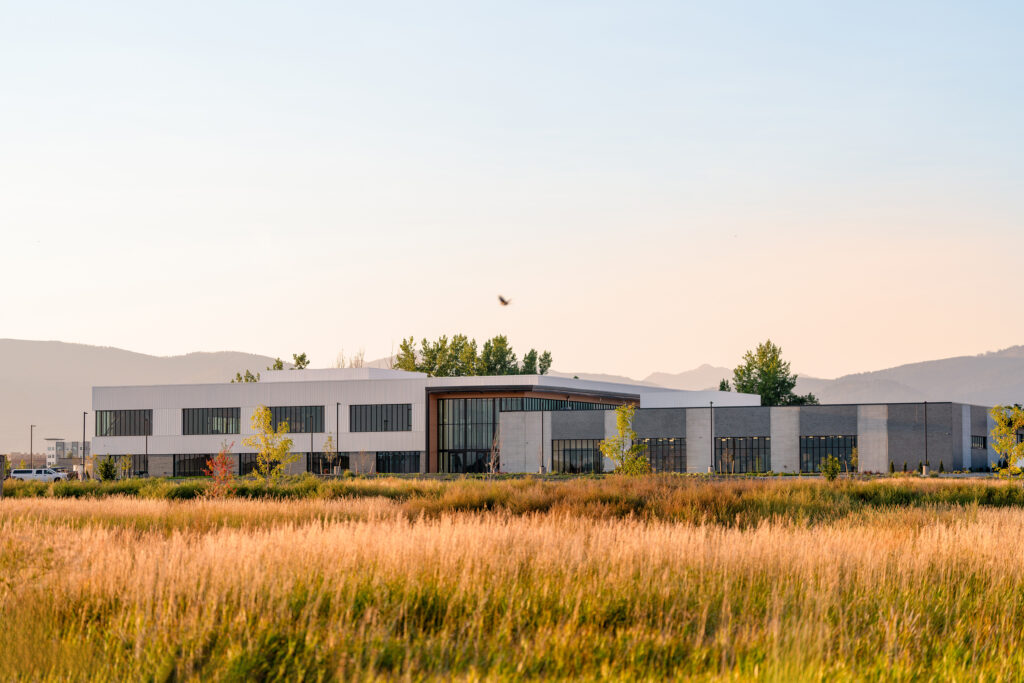Following the Planning and Zoning Commission’s March 13 meeting, the project at Stone Bridge Crossing in Cheshire’s north end is one major step closer to breaking ground, signing tenants, and bringing new commercial energy to a property in town that has been mostly invasive weeds.
Despite clearing the regulatory hurdle, Cheshire developer Paul Bowman isn’t getting ahead of himself. Bowman, of Miller Wolff Napolitano LLC, says Monday night’s vote comes after “a long 20 years” of various efforts to transform several lots on the north end property into a complex that is now projected to feature a gas station and a convenience store, a hotel, a grocer, restaurants, and other anticipated retail uses, along with new housing already underway. Monday’s hearings focused mainly on lots on the eastern side of the property, along Route 10.
Bowman acknowledged the public curiosity about incoming stores but stated that the developers are still in a “blackout” period with prospective tenants. Still, Bowman said, “We’re well on our way,” following the PZC’s approval.
Commission members were largely enthusiastic in their comments following the public hearings on a series of applications, which did not draw any public input.
“Thank you for bringing this to the town. The conceptual drawings look wonderful. I think it’ll be a great addition and I expect we’re probably going to have an unanimous vote,” said PZC Vice-Chair Jeff Natale, correctly predicting the outcome.
The evening’s subject matter was largely technical, even requiring a call to order of the Aquifer Protection Agency, part of the PZC. That application was done, according to project attorney Anthony Fazzone, “as a matter of caution.” The relevant statute, he explained, requires confirmation that there would be no “regulated” activity in the aquifer protection zone. Although part of the development crosses over the North Cheshire Aquifer, no such activity is planned. Fazzone stated that all relevant state and local authorities had been notified as necessary.
In a separate set of waiver applications, project engineer Darin Overton, of SLR Consulting, described some of the earthwork plans. In order to create a flat pad for the retail stores, the level of the development will be below the level of Route 10. The work will also involve disturbing more than five acres at a time, due to the scope of the project.
He added that the plan is to create a “gentle slope in order to avoid guardrails.” Overton explained that the state Department of Transportation had approved those plans and there is “no danger to the public.”
Bowman added that the developers are putting in a sidewalk along the east side of the project as well.
A concern about retail tenants requiring their own branded signage, which might be out of harmony with the architectural plans approved by the PZC, remained present. Bowman, stepping in for the project’s architect who could not attend, stressed that the plan would be for those tenants to strive for harmony with the site, while indicating that businesses often do require their own design for marketing purposes.
Town Planner Michael Glidden added that any “substantive changes” to the look or approved materials would require coming before the PZC again.
Commissioner Casey Downes inquired about the landscaping plans, suggesting that more native plants might be preferable. The development team indicated that they would be willing to consider that request.
In addition to the Stone Bridge Crossing discussion, the PZC addressed other business items during the March 13 meeting, including a request for a special permit to build a permanent structure to accommodate outdoor seating at Rose Dairy on South Main Street. Owner James Barbato explained that the pavilion-style roof, likely to include ceiling fans, would extend the popular spot’s season while making it accessible for guests in rain or hot sun.
Having received permission for variances from the Zoning Board of Appeals, and with no objection from neighbors, the PZC approved the special permit for the long-term fixture.
The PZC also moved to streamline the approval process for accessory or “in-law” apartments. Glidden informed members that in the unlikely case of a non-conforming use being brought to the Planning office, staff would then inform the PZC. Glidden also reiterated that offering the administrative approval route means reducing to $50 the homeowner’s fee from the nearly $500 required to apply for a special permit.
The change, effective on April 1, also saves applicants and the PZC time on hearings which, once Town staff has approved the plans, rarely results in public input or requires PZC clarification, Commissioners stated.
As Natale commented during the discussion, “In all my years here, I don’t think we’ve ever denied one.”






